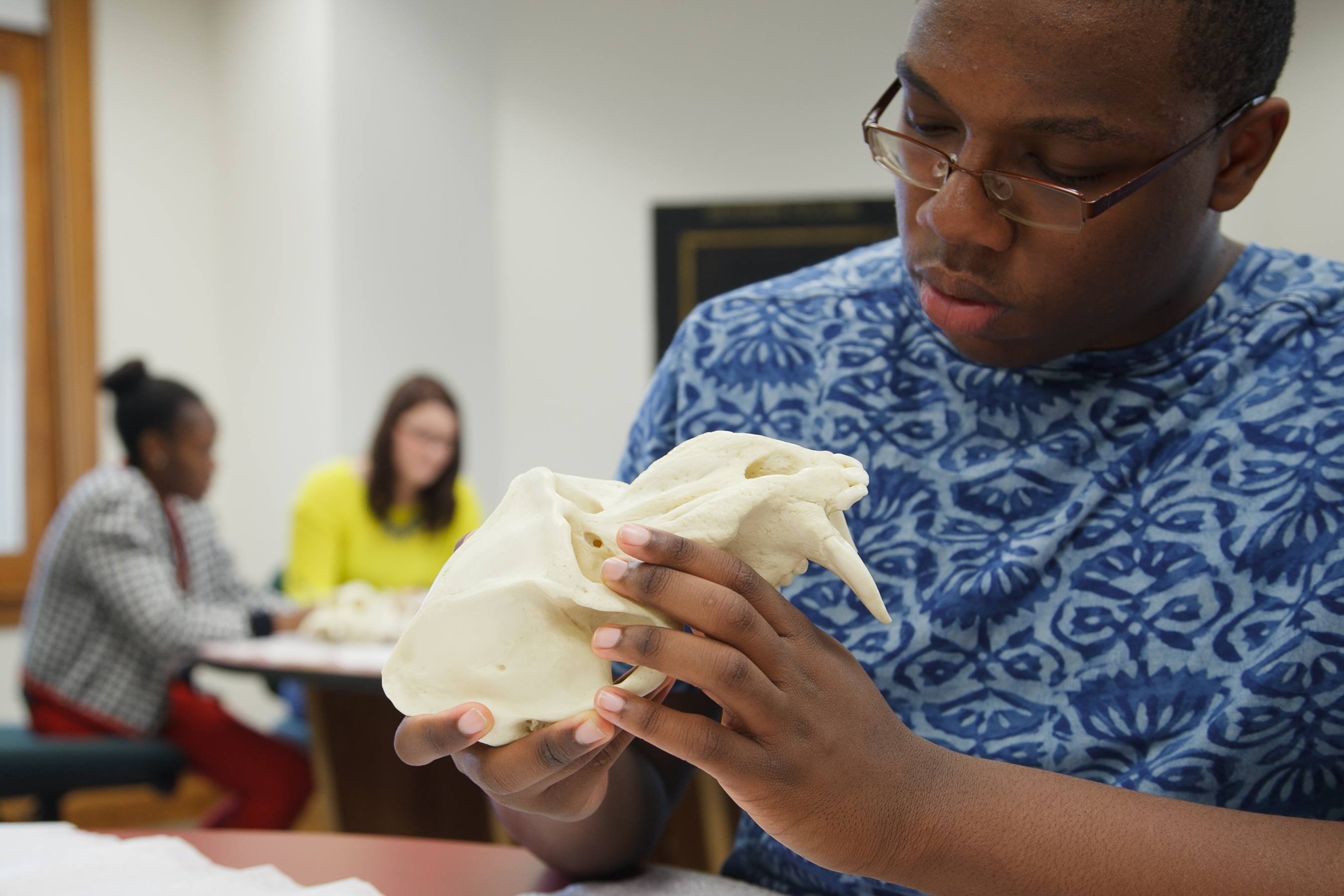
Students in the Keck Anthropology Lab, Denny Hall
Labs
The Keck Biological Anthropology Lab, completed with grants from the W. M. Keck Foundation and the Booth Ferris Foundation, has teaching and research collections in human osteology, hominin fossil casts, biometric tools and computer resources and software to analyze biocultural data. The lab also houses ethnographic fieldwork equipment, including digital audio recorders and computers and software for transcription and analysis. Students use the lab in biological anthropology courses, ethnographic research methods courses, independent student projects and student/faculty research. The Keck Biological Anthropology Lab joins the Keck Archaeology Lab to form the Center for the Study of Human Origins and Ancient Cultures.
In the Dickinson Environmental Archaeology Lab (DEAL), students learn to use equipment for archaeobotanical analysis, including tools for sorting and examining botanical samples, microscopes and computing resources. Students work in the lab on independent research projects and student/faculty research, and it is the staging area for fieldwork in the Archaeological Methods and Theory course. The DEAL is also one of our two hubs for archaeological excavation and survey work, the other being the Keck Archaeology Lab (this link will redirect you to the Archaeology website), which contains the Simulated Excavation Field.
Field Schools
Students in anthropology have several opportunities to learn the fieldwork process first hand from our faculty in actual fieldwork settings. Through our field school in ethnography and biocultural anthropology in Tanzania students learn fieldwork methods in rural eastern Africa, focusing on health, nutrition, and culture in the context of political and economic changes. Anthropology faculty have also led field schools in Cameroon and Mexico, and students have worked with our faculty on their fieldwork in China and Bolivia. In these actual fieldwork experiences students learn anthropological methods—in cultural anthropology, biological anthropology, and archaeology—and apply them under the guidance of faculty researchers. Other opportunities are available through outside programs.
Students receive one or two course credits for participation in field schools, and the programs may be counted toward graduation in the major and the minor. In addition, student research conducted as part of a field school can, in some cases, be continued or expanded for use in preparing a senior thesis to satisfy the thesis requirement in the anthropology major. We also encourage participation from students majoring in other, related fields, and in the past such students have expanded their field school research to prepare theses in those fields.
Individual field schools may have unique prerequisites. Usually a minimum requirement is an introductory course in the relevant field of study. Costs, which also vary, usually include tuition, equipment costs, lodging, meals, and transportation while on the field school. Students usually pay separately the costs of transportation between their homes or the college and the field school site. Other costs, such as passports and any needed vaccinations or preventative medications, are also not covered by the costs of individual programs. Dickinson students who are eligible for financial aid should inquire about options for financial assistance at the Financial Aid Office.
Students can ask any anthropology professor about field schools and fieldwork opportunities. Students can also consult with the chair of the anthropology department.